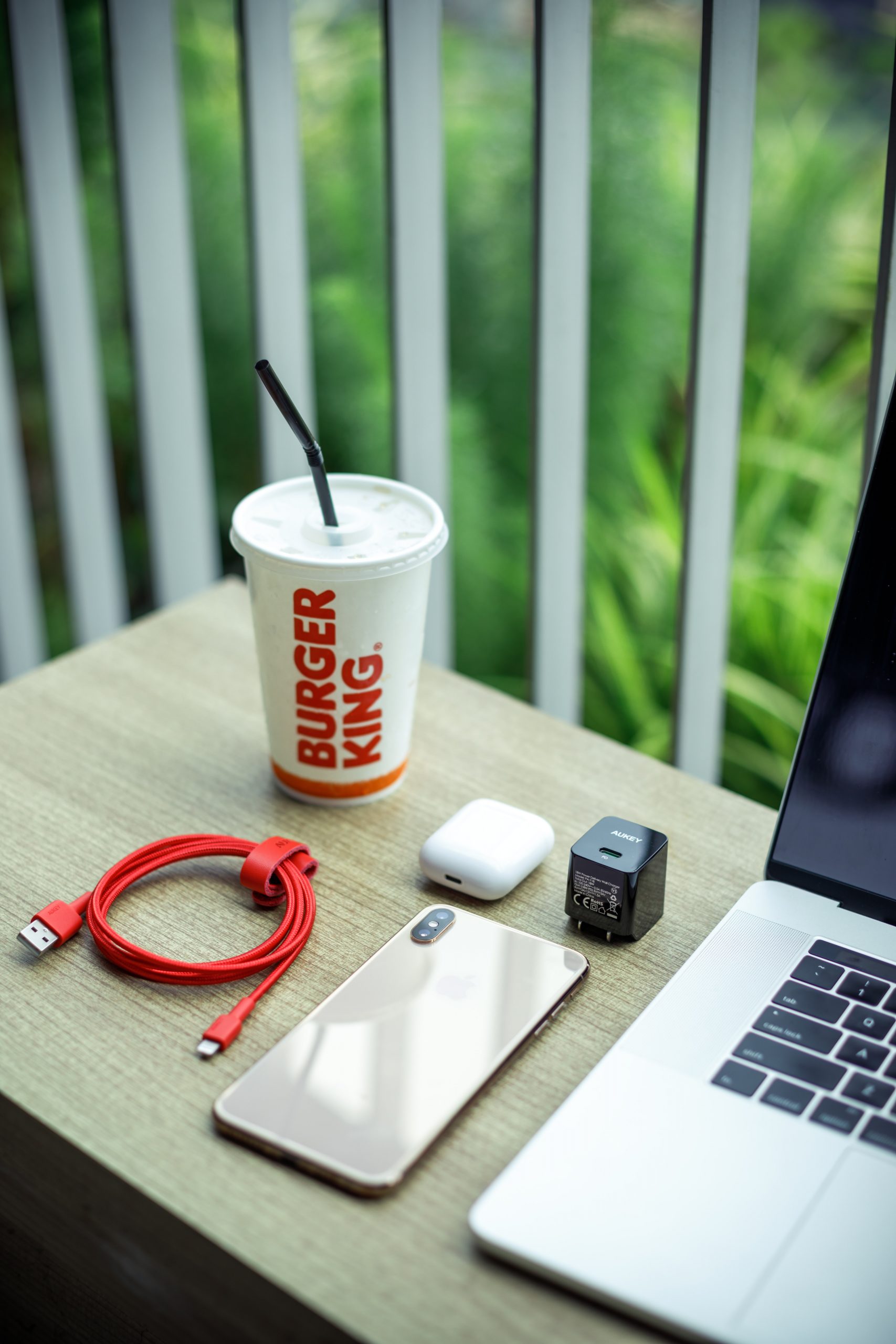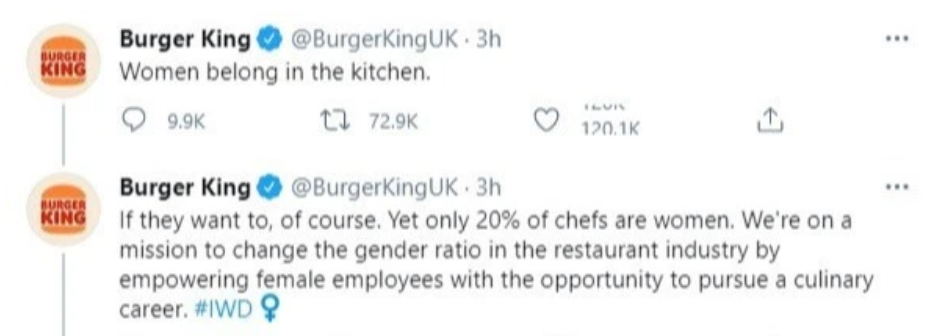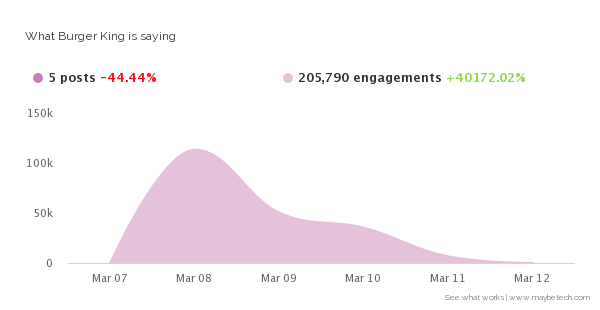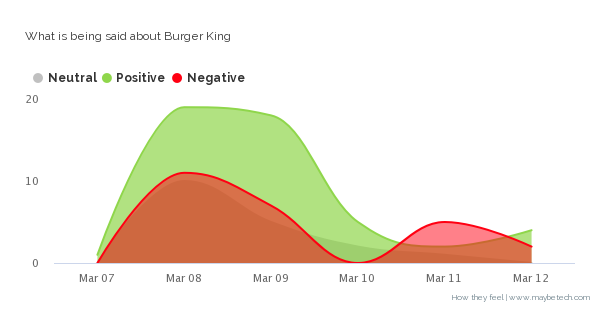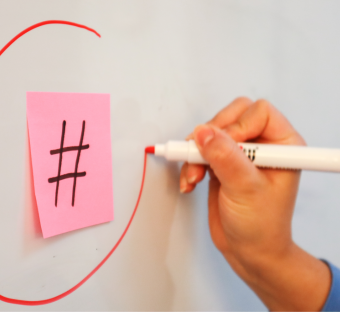What does the data show us?
Between March 7 and March 12 Burger King saw over 40,000% more engagements than they did on their content the previous week. But the goal of the campaign was never solely to increase social media engagement. The primary aim was to increase awareness of their new apprenticeship scheme.
On the surface the increase in social media engagement may look like a success. But on understanding the nature of the engagement and the comments on the content as well as online mentions of the brand, Burger King saw an increase in both positivity and negativity. Crucially, the positivity they were after, was not in line with what they had intended, and it subsequently fuelled more negative feedback.
This demonstrates that if businesses are looking to increase social media engagement as well as brand or campaign awareness, they need to ensure that the mechanic they use is in line with how they want to be perceived. They should think long and hard about the implications of hijacking cultural and socially sensitive topics and calculate if it's worth the potential fallout.
The decision and response Burger King made in the days that followed helped them own and publicly recognise a mistake, avoiding long term damage. Coincidentally they also saw engagement levels on their apology much higher than that on their usual day-to-day content.
